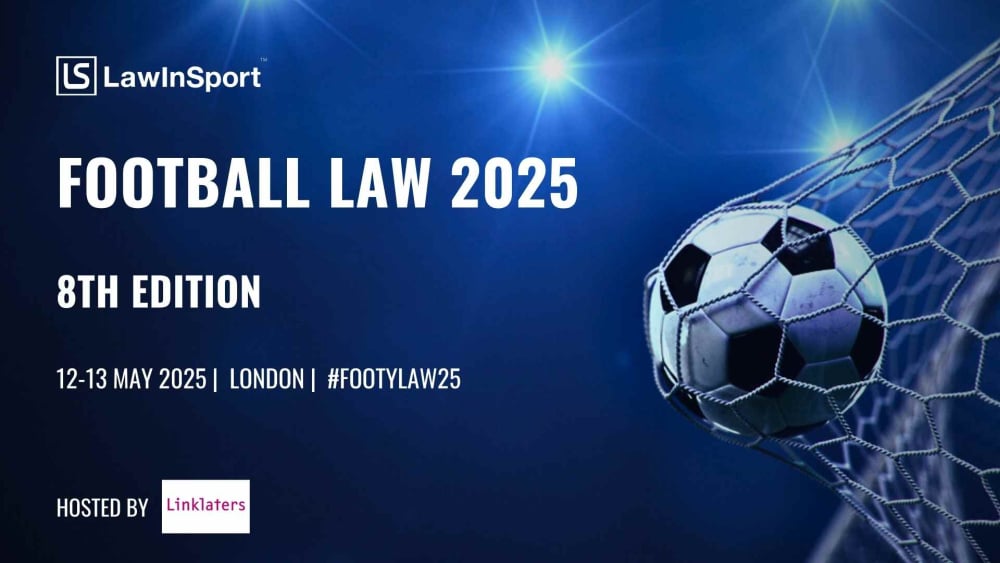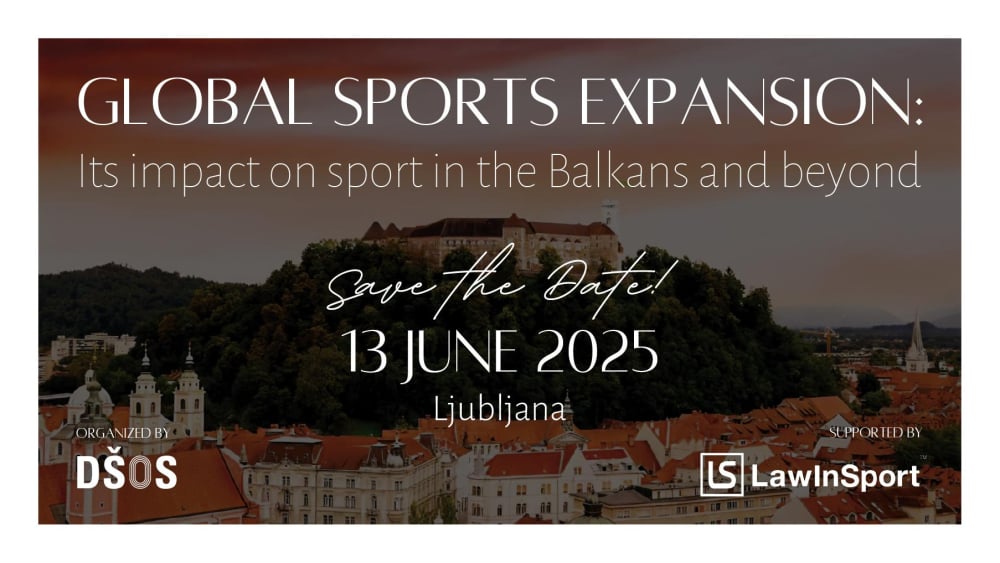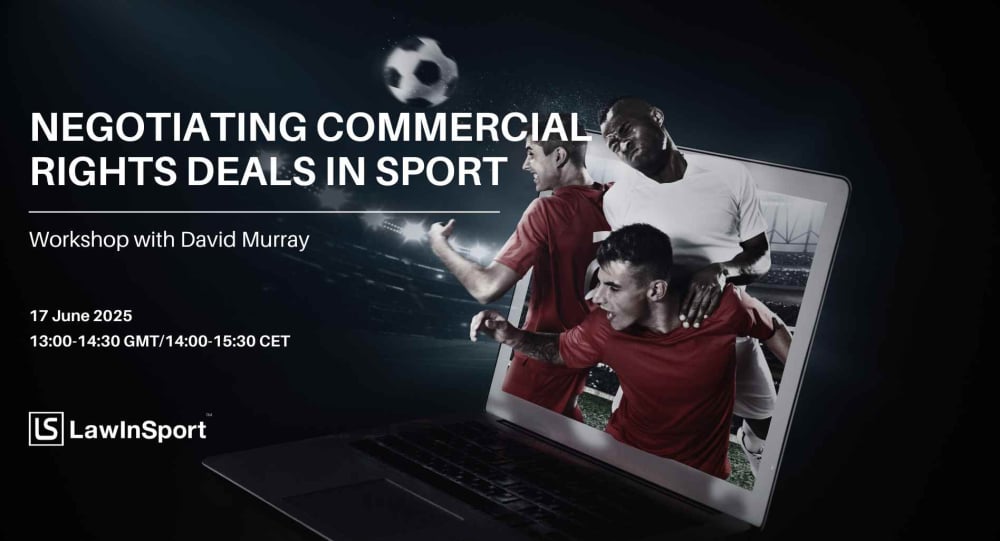An exclusive interview with the former Court of Appeal judge who helped expose corruption at the IAAF - Episode 34
Thursday, 18 February 2016In 2014 Michael Beloff QC, Chair of the Ethics Commission of the IAAF, appointed The Right Honourable Sir Anthony Hooper is to investigate four individuals whose conduct in relation to the Russian marathon runner Lilya Shobukhova was alleged to be in breach of the IAAF Code of Ethics. He finalised the report in August 2015 and the individuals have subsequently been sanctioned by the IAAF Ethics Commission.
A copy of the decision and his report can be found at https://www.iaafethicscommission.org/.
In this interview LawInSport’s CEO, Sean Cottrell, interviews Sir Anthony about the IAAF investigation including:
- His reflections on the IAAF investigation to these individuals
- How the role of whistleblowers in sport should develop
- How Ethics Commission of sports federations should structured and what powers they should poses
- The role of members states should play in fighting corruption in sport
- The role of independent investigators in gathering evidence to bring cases against those suspected of corruption
- The characteristics and expertise need to be an good independent investigator
- What he thinks sport can learn from this case
The text below is not a full transcription, but it is intended to highlight the key points raised in the interview from the above-mentioned topics.
Sir Anthony Hooper will be speaking on the Anti-Corruption panel at the LawInSport conference on the 25 February 2016 at Twickenham Stadium. Click here for further details.
Background
The Right Honourable Sir Anthony Hooper is a member of Matrix Chambers, a fellow of the Judicial Institute of University College London and Chair of the Expert Witness Institute. After eleven years teaching in English and Canadian law schools, Sir Anthony practiced at the criminal bar in England and Wales. He became a High Court judge in 1994, sitting in the Queen’s Bench Division and in the Employment Appeal Tribunal. From 2004-2012 he was a member of the Court of Appeal.
In 2013 he chaired a Commission set up by Public Concern at Work and produced a wide ranging report on whistleblowing in the workplace (https://www.pcaw.org.uk/whistleblowing-commission).
In 2015, for the General Medical Council, he conducted a review of how the Council handles cases involving individuals who regard themselves as whistleblowers and who have appropriately raised concerns in the public interest, including individuals whose fitness to practise is being investigated or determined (https://www.gmc-uk.org/Hooper_review_final_60267393.pdf) .
He has assisted the Post Office to resolve disputes with sub-postmasters who have raised concerns about the reliability of the computer programme used in post offices.
Sir Anthony assists the Stolen Asset Recovery Unit of the World Bank and the United Nations Office on Drugs and Crime to raise the awareness of judges in East Africa of their powers to preserve and confiscate proceeds of crime and particularly the proceeds of corruption.
In addition to his public work, he assists law firms in the conduct of heavy litigation in England and abroad.
What was your remit given to you by the IAAF Ethics Commission to investigate corruption at the IAAF?
A complaint was made; that complaint was then evaluated by a panel of the IAAF Ethics Commission.
I was asked to investigate four individuals:
- Lilya Shobukhova, a champion Russian marathon running, Valentin Balakhnichev - President of Russian Athletics Federation and former -Treasurer of the IAAF; and
- Gabriel Dollé – the former director of the medical and anti-doping department at IAAF
- Papa Massata Diack
Last August, I completed my report and made recommendations as to what I thought were the appropriate charges to be considered by a panel of the Ethics Commission. Those recommendations were accepted. The panel sat between the 16 and 18 December 2015, and as is now know following the publication of the decision on the 08 January 2016, three of them were banned for life and one banned for a much shorter period.
How difficult was this case to investigate?
I think both as a barrister, particularly doing criminal cases, and then as a High Court judge and then a Court of Appeal judge one gets used to summarising and putting together evidence. One gets used to reaching conclusions on the available evidence either adverse or otherwise to an individual or to a company.
What I did was write to a number of people I was investigating and other witnesses and ask them to explain or answer my questions. Putting that together led to the report. I did not interview in person. I did not go to Monte Carlo, I did it by simply sending by email questions and requests for information and under the IAAF rules all those I was investigating were obliged to cooperative with me and answer my questions.
What were the ramifications if the individuals did not cooperate?
I did not have that situation. One of the ramifications would be that the panel of the Ethics Commission, if it proceeds to charging, could draw adverse findings from the failure to co-operate.
What was the some of the key issue surrounding such investigations?
The key issue for me is that as an investigator for the IAAF Ethics Commission I have no power to force people to co-operative with me, or, and more importantly, I have no power to require law enforcement agencies to make inquiries on my behalf or indeed to share the findings of their inquires, either on-going or not.
This becomes clear from my report. There was an important document, a transfer of money from Singapore to Russia. I would have like to have known much more about the background to that transfer to look at bank statements and to understand who had used that account. I was able to get in contact with the Singapore [law enforcement] but there were not able to help me, as this was covered by banking secrecy. Likewise, I contacted the French law enforcement agency that is investigating a number of people, arising out of the IAAF case. Again, I could not take possession of documents that could have been important for my inquiry.
I now wonder if that as conditions of being a member of a sports federation member states shouldn't be obliged to co-operate with an investigation or help an investigator, so that I could have gone, for example, to Singapore armed with some legal authority to be allowed access to some documents. I am sure that this is a problem for other investigators.
One could say leave it all to the police, but that would not enable an investigator to get hold of such material until the end of a trial or the criminal investigation. So it seems to me, it is unfortunate that sports organisations such as FIFA and the IAAF cannot exercise powers to obtain material so essentially either have to go on what they have an hope it is sufficiently full or wait until the end of what could be a prolonged criminal investigation. Even then it will take a very long time to get hold of documents you may want.
How does this compare to other sectors?
This is the same problem as in other sectors. If I was investigating a complaint by a whistleblower I would be able to obtain access all the corporate documents that are a background to the complaint. But I would have not powers at all, absents initiating civil proceedings, in order to get documents that might support or negotiate the claims made by the whistleblower.
It is very difficult to carry out an investigation unless you are armed with the powers of the FBI, Serous Fraud Office or the French Financial Crime Agency. Therefore sports federations probably have to rely on whistleblowers. One has have seen that with the IAAF case. It was a combination of the journalist Hajo Seppelt and the whistleblowers that lead there to be enough evidence to initiate an investigation.
Do you think there are enough protections for whistleblowers?
That is a worldwide problem. I have done a report on this for Public Concern at Work ‘Report on the effectiveness of existing arrangements for workplace whistleblowing in the UK’ about how whistleblowers should be treated. More often than note, genuine whistleblowers who try to raise a complaint end up being punished.
They end up being sacked, discriminated against and harassed. The task of trying to have a climate where whistleblowers are welcomed is an extremely difficult task. Corporate bodies, and I am not just talking simply about sporting federations, tend to want to hold the line, they often have doubts about the whistleblower, they may not like the whistleblower as a person and therefore there is a reaction, “lets get rid of the whistleblower”. How can you change that?
As I the case of the IAAF and the case of WADA there are provisions to reduce sanctions on whistleblowers but one cannot underestimate the pressure on whistleblowers. If one looks at the Hajo Seppelt film, there was the Russian athlete who told her story and then left the country, such were, no doubt legitimate concerns for her own safety. Even if you make provision for that, there will probably be a sanction for the whistleblower, which may involve repayment of price money and suspension for a period of time. Therefore everything encourages the whistleblower not to speak out.
Do you think there should be a single body investigating such cases?
With a body outside of the sports federation you have issues over confidentiality and people not willing to co-operate. I would prefer a simple system where member states give sports federation some compulsive powers; it would have to be subject to all kinds of namely judicial control and executive control but there are all details [to be agreed].
I think what we want is these federations to be able to investigate speedily, effectively and to obtain the best evidence they can you use in order to take action against those who have been breaking the code.
Would it be a good idea to have a structured standard form set guidelines and rules across sport for dealing with whistleblowers?
I would not object with that. The more one publicly recognises the role of the whistleblower the more likely it is we will find out the scandals. If you take a case of corruption or alleged case of corruption, those involved will not tell people. It is not going to be in their interest to reveal what is going on. Only if someone on the inside says what has been happening or if a journalist of the calibre of Hajo Seppelt puts two and two together and makes four, are you likely to be able to take it any further. Ethics Commission inevitably depends on a complaint and if that is going to be processed on prima facie evidence.
Is it important to have someone experienced to carry out such investigations?
I have extensive experience of marshalling facts and then I have extensive experience of resolving factual disputes and in the case of an investigator making recommendations. I think experience counts in these investigations.
Should these investigations go through an independent Ethics Commission?
Yes, definitely through an independent Ethics Commission and through an independent investigator who has no knowledge of the organisation.
Why is it important to be independent?
It is important to be independent and impartial, like any judge has to be. You don’t sit as a judge on the case if you know the people involved.
- Anti-Corruption Anti-Doping Athletics Bribery IAAF Ethics Commission International Association of Athletics Federations (IAAF) Investigation




